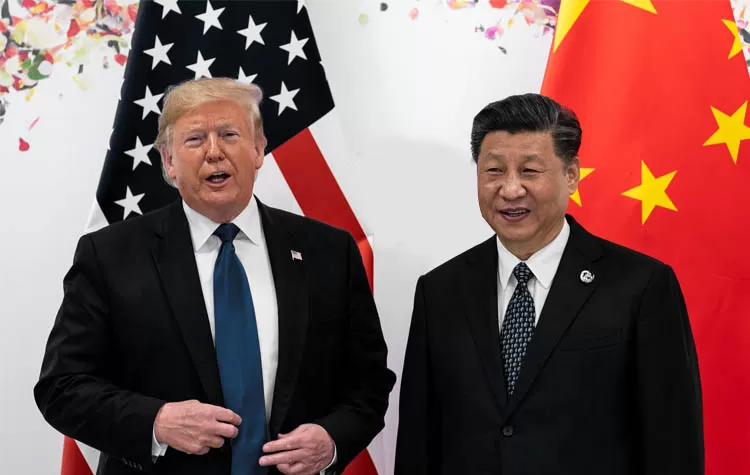
US-China Trade Row Expands Despite Contradictory Statements
China's diplomatic rivalry with the United States continues on an upward trend with diverging stories about contemporary trade relations. As U.S. President Donald Trump recently noted that negotiations between the U.S. and China regarding tariffs are moving in the right direction, Beijing officials have adamantly refused the existence of any such negotiations. The friction exacerbates a contentious relationship typified by reciprocal imposition of tariffs as well as open differences.
China's official response not only dismissed President Trump's words but also placed a premium on an already pre-conditioned intent to participate in future negotiations—based on respect and equality. Although both economic titans persist in maintaining combative tariff maneuvers, expectations for a resolution continue to be put into question.
China Denies Trump's Trade Talk Claims
Chinese officials have publicly rebuffed recent remarks by President Donald Trump regarding ongoing trade talks. Guo Jiakun, a Chinese Foreign Ministry spokesperson, categorically stated there are no negotiations under way with the United States. He emphasized that no agreements have been made, and reiterated China's long-held position that any future negotiations have to be conducted on principles of equality and mutual respect.
That came just days after President Trump indicated that negotiations with Beijing to reduce tariffs were in a positive way. He signaled that the accord was close at hand, presenting it as being part of his administration's initiative to stabilize world trade and open up the US market.
Tariff Tensions at an All-Time High
Today, the United States levies a steep 145% tariff on some of its Chinese imports—a move taken amid broader cross-border trade restrictions. China retaliated by imposing retaliatory tariffs of equalizing proportions on some U.S. products and imposing a rate of 125%. This reciprocity has fueled an already delicate trade environment between the world's two largest economies.
Even as Trump spoke in optimistic terms, the absence of reported negotiations and the high tariff barriers suggest a long standoff. Analysts view developments as an indication of growing mistrust, and warn against the economic cost of a prolonged standoff.
Trump's Optimism Met with Skepticism in Beijing
President Trump has remained firm in his strategy towards the trade relationship with China. In public remarks, he stated that tariffs would be reduced substantially—though not entirely eliminated—as part of a potential agreement. He also expressed a desire to have good relations with Beijing, noting that countries around the world are eager to open up the U.S. market.
But China's dismissal of these charges raises doubts on the sincerity or truthfulness of Trump's words. By affirmatively declaring that no negotiations are ongoing, Beijing sends a different message—one regarding the credibility of U.S. leadership on trade policy.
Outlook: Continued Trade War and Economic Implications
Without official meetings being held, the existing tariffs are ratcheting to their highest points. The trade war launched as part of the Trump administration's broader attempt at rebalancing global trade has reached a deadlock. Both nations refuse to offer concessions without reciprocal benefits or strategic gain.
Economists warn that the tit-for-tat tariffs can disrupt international supply chains and increase expenses for Chinese and American businesses equally. As both nations remain firm, the global community waits with bated breath for any sign of a resolution.













